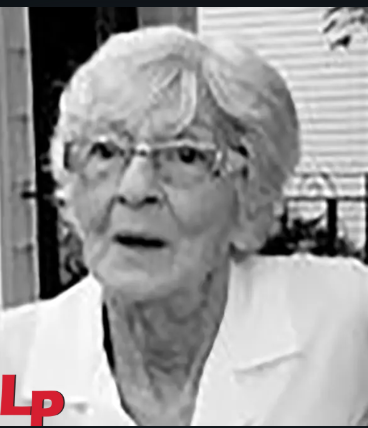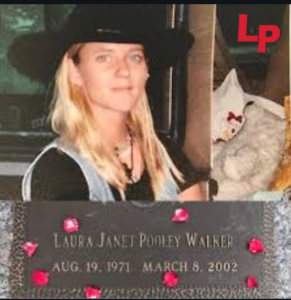
Kathleen Dehmlow’s obituary took an unexpected turn, exposing deep family wounds. Learn about her controversial life story and the impact of her obituary.
Kathleen Dehmlow Biography
| Name | Kathleen Dehmlow (Schunk) |
|---|---|
| Birth Date | March 19, 1938 |
| Birth Place | Wabasso, Minnesota |
| Parents | Joseph and Gertrude Schunk |
| Spouse | Dennis Dehmlow (m. 1957) |
| Children | Gina and Jay |
| Affair | Lyle Dehmlow (Brother-in-law) |
| Moved To | California (1962) |
| Death Date | May 31, 2018 |
| Death Place | Springfield, Minnesota |
| Legacy | Viral obituary, family controversy |
Obituaries typically serve as tributes to a deceased person’s life, offering comfort to family and friends. However, Kathleen Dehmlow’s obituary, published in The Redwood Falls Gazette, became infamous for its brutally honest tone. Instead of a loving remembrance, it publicly aired long-standing family grievances. This obituary quickly went viral, sparking intense debate on social media about family loyalty, public shaming, and the purpose of an obituary.
Who Was Kathleen Dehmlow?
Born on March 19, 1938, in Wabasso, Minnesota, Kathleen Dehmlow was the daughter of Joseph and Gertrude Schunk. She married Dennis Dehmlow in 1957 and had two children, Gina and Jay. However, her life took an unexpected turn in 1962 when she became pregnant by her husband’s brother, Lyle Dehmlow. Following this event, she left her family and moved to California, leaving her children to be raised by their grandparents.
The Controversial Obituary
The obituary began in a conventional manner, detailing Kathleen’s birth, marriage, and children. However, it then took a shocking twist, revealing her extramarital affair, abandonment of her children, and the lasting bitterness from her family. The obituary concluded with a harsh statement from her children, claiming she “will not be missed” and that “this world is a better place without her.”
This public airing of family grievances stunned readers, leading to viral discussions. While many sympathized with her children’s pain, others questioned whether such a public condemnation was appropriate.
Public Reaction and Debate
Viral Spread on Social Media
Once the obituary was published, it spread rapidly across platforms like Facebook and Twitter. Users debated whether obituaries should be brutally honest or if they should focus on reconciliation and closure.
Media Coverage
Major news outlets covered the story, analyzing the ethical implications of such an obituary. Some saw it as an act of justice, allowing the children to express long-suppressed pain. Others believed it crossed a line, turning a private family issue into a spectacle.
Family Responses
A relative, Dwight Dehmlow, defended Kathleen, stating that she had regretted her past actions. He criticized the obituary’s authors for refusing to acknowledge any reconciliation, calling the situation “more complicated than it seems.”
Ethical Questions Raised
Are Obituaries the Right Place for Personal Grievances?
Traditionally, obituaries serve to honor and remember the deceased. Kathleen’s obituary challenged this norm, raising questions about whether such writings should include personal grievances or be reserved for positive memories.
The Power of the Written Word
Once an obituary is published, its impact can be profound and permanent. Kathleen’s obituary sparked global discussions on the nature of public versus private grievances, showing how words can shape legacies.
Newspaper’s Responsibility
The Redwood Falls Gazette defended its decision to publish the obituary, citing the absence of legal constraints. However, after backlash, the publication reviewed its standards, highlighting the responsibility of media outlets in such sensitive matters.
Similar Cases of Viral Obituaries
Emily Phillips’ Self-Written Obituary
Unlike Kathleen’s obituary, Emily Phillips, a Florida woman, wrote her own humorous and heartfelt obituary before passing away in 2015. Her lighthearted approach resonated with many, demonstrating how personal reflections can leave a positive impact.
Other Brutal Obituaries
Kathleen’s obituary is not the only instance of public airing of grievances. Similar cases have surfaced where family members used obituaries to call out betrayals, debts, or personal disappointments. These examples illustrate shifting attitudes toward obituaries as platforms for personal expression rather than just traditional eulogies.
FAQs
Why did Kathleen Dehmlow’s obituary go viral?
Her obituary shocked readers by publicly detailing her extramarital affair, abandonment of her children, and her children’s harsh condemnation, deviating from traditional obituaries.
Did Kathleen Dehmlow ever reconcile with her children?
There is no public record of reconciliation. However, a relative stated that Kathleen regretted her past actions.
What happened to the obituary?
Due to backlash, The Redwood Falls Gazette removed the obituary, but it had already spread widely across social media and news platforms.
Can obituaries be legally challenged?
In most cases, newspapers have the legal right to publish obituaries submitted by families, unless they contain defamatory statements.
What lessons can be learned from this obituary?
The obituary underscores the long-lasting impact of family conflicts, the importance of reconciliation, and the ethical considerations of publicizing private matters.
Conclusion
Kathleen Dehmlow’s obituary stands as one of the most controversial death notices ever published. It exposed deep-seated family pain and ignited a broader discussion on the role of obituaries in modern society. While some viewed it as a justified act of emotional catharsis, others saw it as an inappropriate public shaming. This case serves as a reminder that legacies are shaped not only by life choices but also by how they are remembered.
What do you think? Should obituaries include personal grievances, or should they focus on positive remembrances? Let us know your thoughts!





